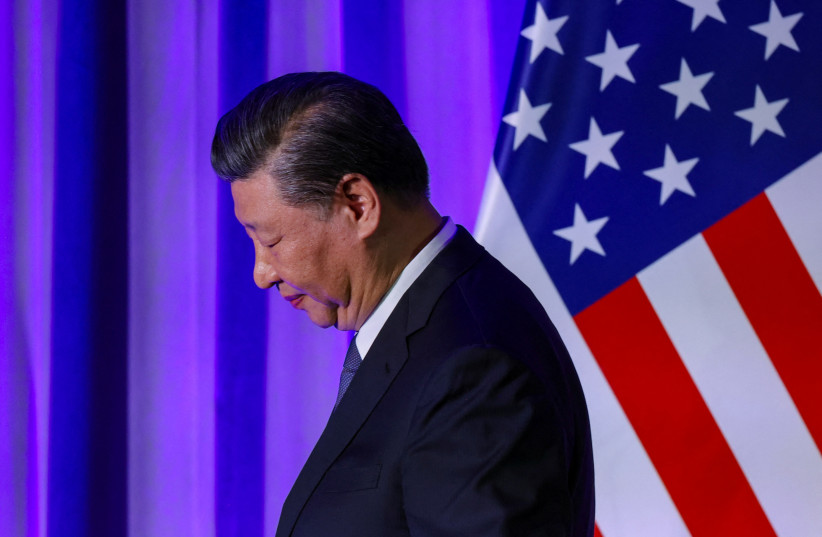During his recent state visit to France, People’s Republic of China President Xi Jinping brought with him a significant agenda for his talks with European Union members and candidate countries. His trip also took him to Serbia and Hungary, a sign of China’s diplomatic interest in revitalizing relations with Europe—almost five years after the president’s last official visit.
The decision to visit those three countries was not primarily politically motivated but in line with China’s economic focus. Hungary is one of China’s key investment destinations in Europe, where Chinese companies are building Europe’s largest battery factory and preparing to build China’s first car factory in Europe – on Hungarian soil.
There is also Chinese-French cooperation in the field of electric cars. The fact that President Xi Jinping chose Paris as his first stop is revealing in several respects, particularly in that the visit coincides with the 60th anniversary of the establishment of Paris-Beijing diplomatic relations, an anniversary that symbolizes the independence of French decision-making vis-à-vis relations with the US.
Sino-French relations
This has particular significance today, in light of the US campaign warning of China’s overpowered influence on European economies – and of President Emmanuel Macron’s insistence on a relatively independent French foreign policy towards China.
Macron has previously stated: “The worst thing would be to think that we Europeans should be followers – adapt to the American rhythm and to a Chinese over-reaction.”

Macron also sparked controversy when he said that Europe should not be a “vassal” of the US in the event of a conflict with China over Taiwan. Macron has called on European countries to take an independent stand in US-China disputes, prompting some American media to accuse him of weakening Western deterrence capabilities against China.
Beijing is certainly watching with interest Macron’s tendency to provide a European dimension to France’s relations with China as he ensured that European Commission President Ursula von der Leyen attended his meeting with Xi in Paris – a trilateral summit that is not without significance.
Despite major trade disputes between the two sides and European concerns about cheap Chinese export flows and potential threats to national security, Europe currently appears to require that China play an active role in containing the war in Ukraine. This is especially true given the war’s stalemate – and the US preoccupation with the effect of the Gaza crisis on the presidential election – which has escalated to the point of jeopardizing President Joe Biden’s chances of a second term.
China, which recently hosted German Chancellor Olaf Scholz and US Secretary of State Antony Blinken and is preparing for the upcoming visit of Russian President Vladimir Putin, can indeed be a key actor in resolving the Ukrainian crisis, especially since it wants to play that role.
However, this interest of China’s has so far clashed with the desire of the West, led by the US, to inflict a military defeat on Russia in Ukraine. This ambition has been tempered by the reality on the ground, as the possibility of a military defeat for Ukraine now appears to loom, given the continued advance of the Russian army.
Xi’s visit to France included a meaningful approach expressed in his promise to open markets to Western companies, his speech on understanding the risks posed by the Ukraine crisis to Europeans, and his country’s reaffirmation of its commitment to peaceful coexistence between states.
In his economic message to France, Xi stated that China wished to import more high-quality French agricultural products and cosmetics to meet the growing demand for a better lifestyle. The leader of the world’s second-largest economy reiterated that his country will work with France to maintain the spirit that prevailed when diplomatic relations were established – and to promote a comprehensive strategic partnership between the two countries.
Overall, Europe seems to have reached a point where it does not fully subscribe to the American position, which calls for isolating or economically decoupling from China. The European position aims to reduce the risks of economic competition and continue to regard China as a partner, a view reiterated by France, which calls for an economic balance that ensures sustainable trade and mutual benefit.
The French position on trade issues is in line with that of other European countries, but it diverges on security issues. The Europeans still believe that NATO and the US alone are capable of guaranteeing European security. However, Macron’s France is not alone in not wishing to isolate China.
Hungarian Prime Minister Viktor Orban seems to be one of the Chinese Communist Party’s closest friends in Europe. He favors an eastward orientation and the reduction of his country’s dependence on trade with the West, preferring to focus on China and the East.
Investment
Orban has even gone as far as signing counter-espionage agreements with China, allowing Chinese police to patrol the country to facilitate the pursuit of Chinese defectors in Europe.
Hungary has become the top destination for Chinese trade investment in Central Europe, signing a Belt and Road Initiative cooperation agreement with China and receiving $7.6 billion from Beijing to finance the Budapest-Belgrade high-speed railway, the Belt and Road’s flagship project in Europe. A new project to build an oil pipeline between Hungary and Serbia was also announced as part of the initiative. Orban was the only EU member to attend the third Belt and Road Forum in Beijing last October.
These diplomatic moves by China appear connected to political calculations in the context of former president Donald Trump’s growing chances of winning the next presidential election in the US, with all the possible changes and fluctuations in US foreign policy toward China or European partners.
The writer is a UAE political analyst and former Federal National Council candidate.
